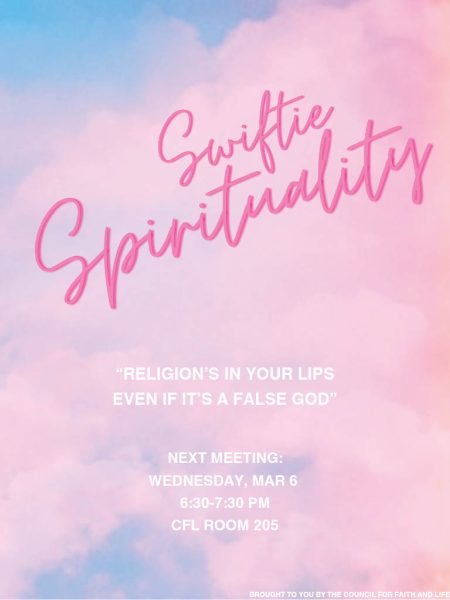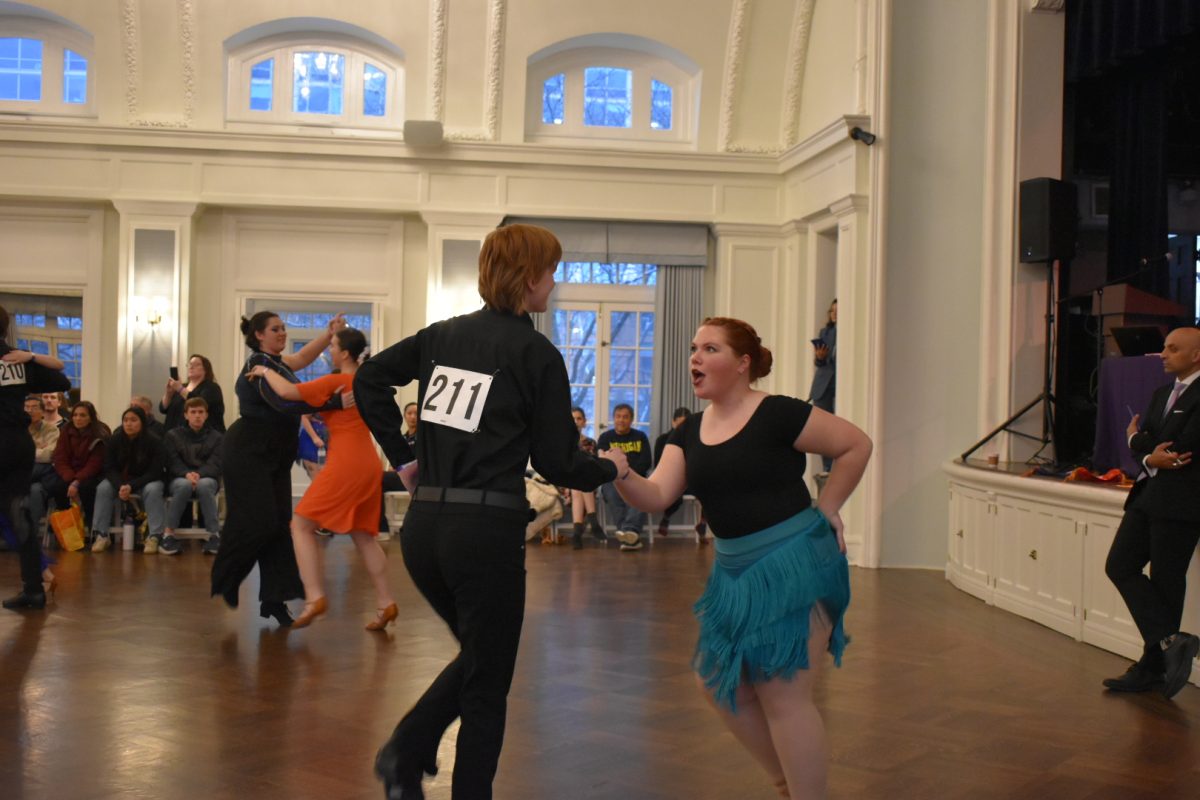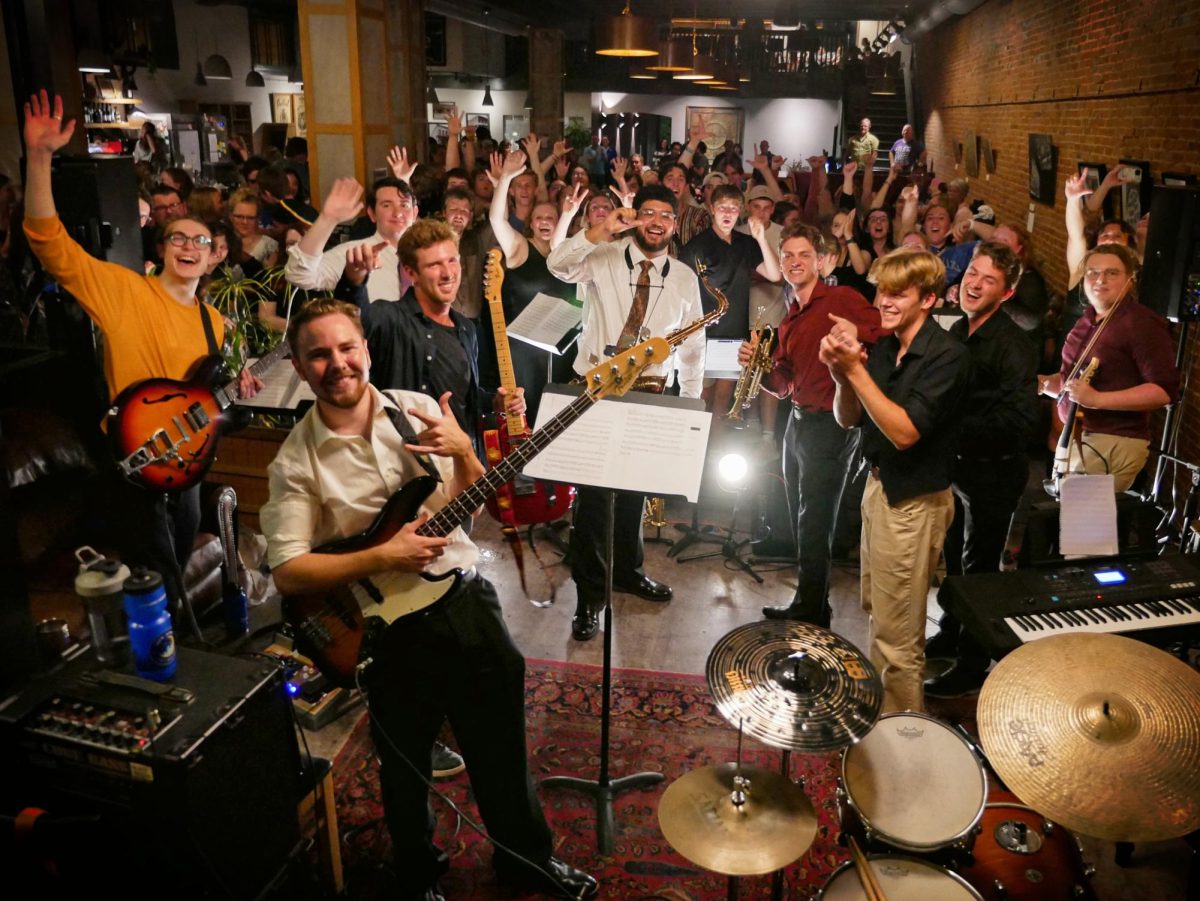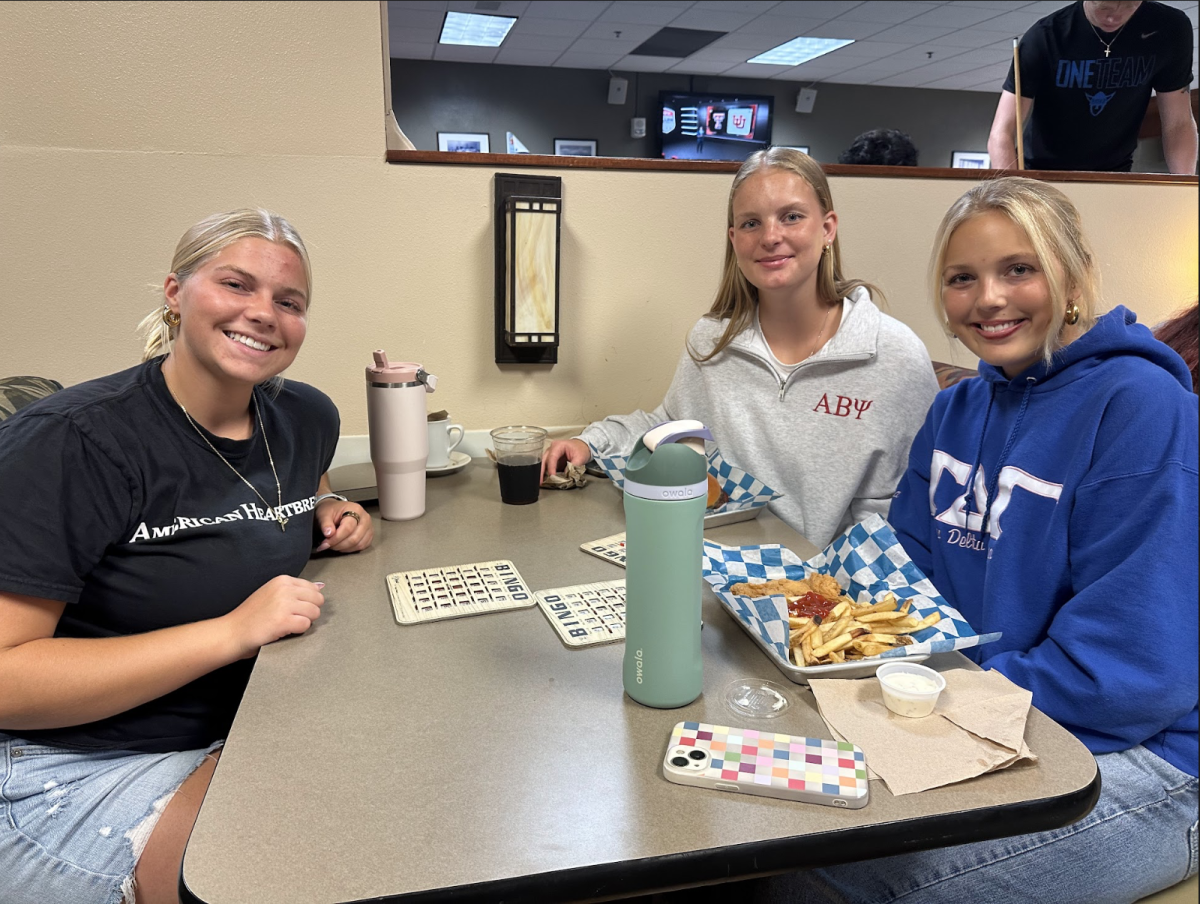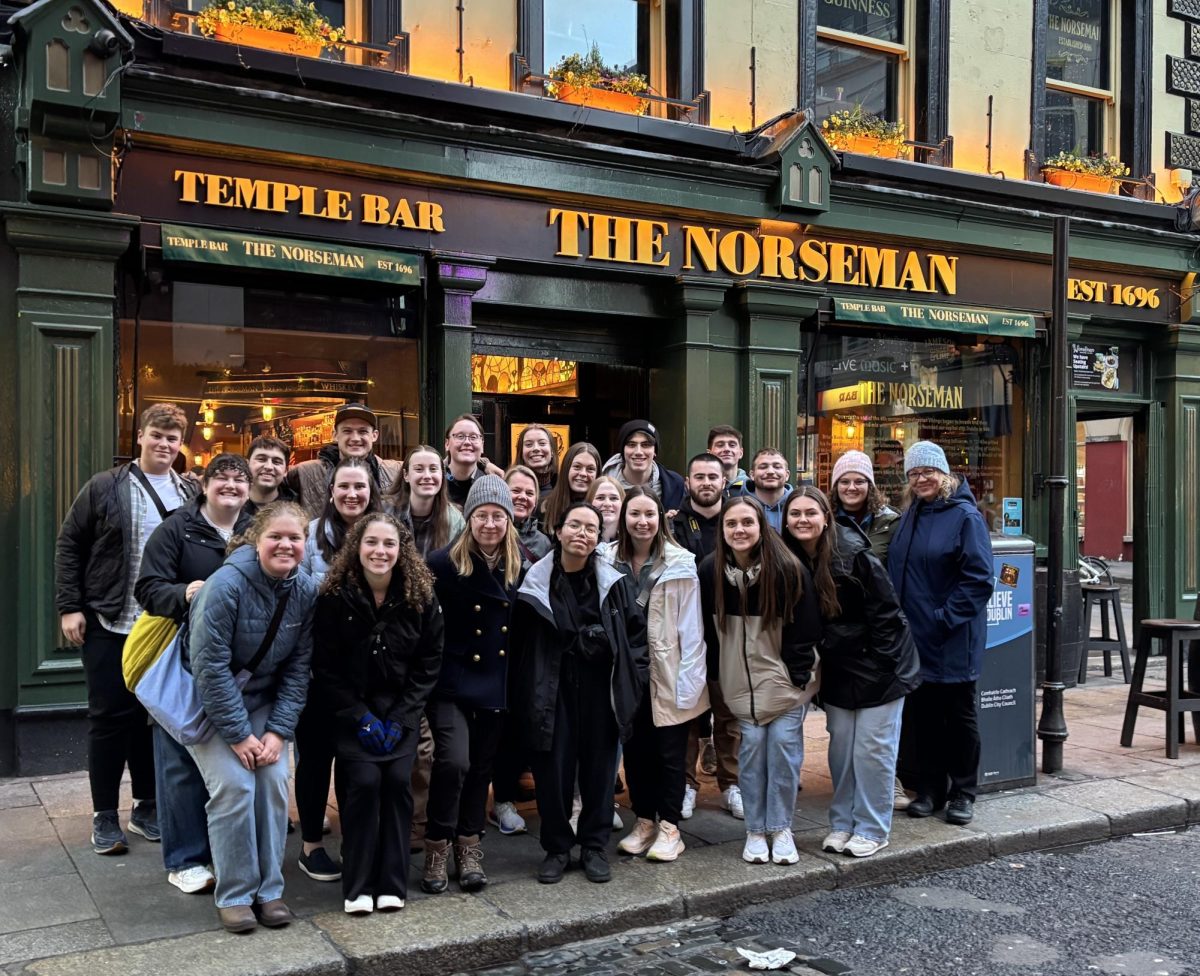Does Taylor Swift give you a sense of spirituality? Can a community of Swifties be considered a religion? But what does being a Swiftie mean?
Both Council for Faith and Life members and Swifties — aka Taylor Swift fans — met to discuss these questions and what she means to them at Swiftie Spirituality on February 21st. The group met in the Melancthon Room in the Center for Faith and Life. Council for Faith and Life Facilitator Marshall Laidlaw (‘24) was the one that put this event together and pointed to the connections he saw between Swift and spirituality.
“I’m a Swiftie, I’m somebody who studies religion, and I think there are so many spiritual connections to Taylor Swift’s connections and spiritual themes that underlie a lot of her albums, and I want to talk about that with people,” Laidlaw said.
The meeting started off with the group defining what exactly is religion and spirituality and how they are different. Elements that were brought up for religion were creed, belief, rituals, community, code, morality, and theology. Elements of spirituality that were discussed included individualism, self practice, nonconformism, and higher purpose.
“Religion means there is a community, you are a part of a community of belief,” Laidlaw said. “While spirituality can be more of an individual, more based on self practice, created by you. And Taylor Swift is both of those.”
The group discussed how Taylor Swift and her community do have elements of both religion and spirituality. Examples included how much people are invested in her and create theories about her life, creating rituals at her concerts to dress like her, scream chants, and exchange bracelets, and diving deep into her lyrics to understand its meanings and hidden messages. For example, Laidlaw believes that his favorite album “Reputation” is about agency.
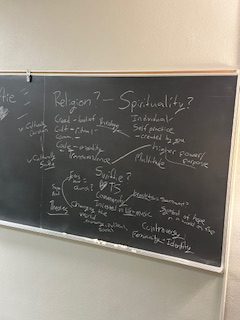
“[‘Reputation’] is both filled with just this amazing imagery and this sort of reclaiming your identity and autonomy,” Laidlaw said.
Kjerstin Halverson (‘24), who is also on the Council for Faith and Life and is “a huge Swiftie,” also enjoys talking about the underlying messages in Swift’s music. She said that when Laidlaw brought up the idea for the group, she screamed in excitement.
“I was like ‘I can talk about Taylor Swift forever’ because there is so much to unpack,” Halverson said. “I think that there is so much for everyone even if you’re not a fan of her music. [There are] underlying messages about femininity, about yourself and your identity.”
Those in attendance talked about the connections they feel to her music and to their own lives. Many brought up how relatable Swift’s music is. Others thought Swift’s music was a reflection of similar trials they have been through.
The meeting ended with the group analyzing Swift’s song “Holy Ground,” and reading an article titled “Worshiping at the Church of Taylor Swift” from Christian Century Magazine.
Overall, the group felt that Swift’s music not only connects people to others but to themselves. This resonated with the group because of Swift’s commonalities with religion. Halverson pointed out Swift’s recent ability to create opportunities to forge new connections with family members and bring people together in new ways.
“Taylor Swift is an avenue for young women to feel accepted in spaces that they historically haven’t been,” Halverson said.
“Swiftie Spirituality” is hoping to meet every other week and is looking for more members. Their next meeting will be on March 6 from 6:30-7:30 p.m. in the Melanchthon Room (CFA 205), where they will be discussing the “Lover” album.
